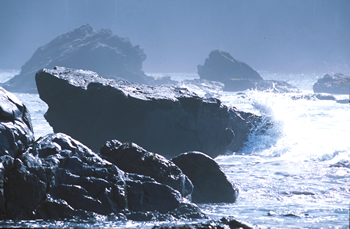Vancouver Island Region Ecosystems
|

The biodiversity of Vancouver Island is uniquely linked to its climate and geomorphology. The island lies within British
Columbia’s Southern Hypermaritime climatic type that supports ecosystems within the Coastal Douglas-fir, Coastal Western Hemlock and Mountain
Hemlock Biogeoclimatic Units. Influenced by the long winter rainy season, together with water
deficits experienced during the summer (especially on the southeastern coastline), these ecosystem complexes represent some of the highest
concentration of biodiversity in the province.
The island’s mild climate, picturesque landscapes and charismatic wildlife attracts many recreational visitors and new
residents to the island. Strong urban and rural growth and upland resource extraction however have contributed to the loss and degradation of some of
Canada’s rarest ecosystems.
To encourage careful stewardship of these finite and fragile resources, the Vancouver Island Regional Ecosystem Section conducts
outreach and monitoring aimed at raising public awareness about the island’s ecological values and the potential impacts of human activities on
the landscape, while collaborating on community-led planning processes to minimize these impacts.
The Ecosystems Section develops, interprets and implements provincial and regional strategies to protect, conserve and restore
biological and physical diversity native to the region. It provides expertise in the integration of fish and wildlife habitat and ecosystem
conservation requirements into forest management, and urban, rural, and industrial land us.The Section also provides conservation expertise to Parks
and Protected Areas staff, maximizing our opportunities to conserve our ecological heritage. (PHOTO)
|
|